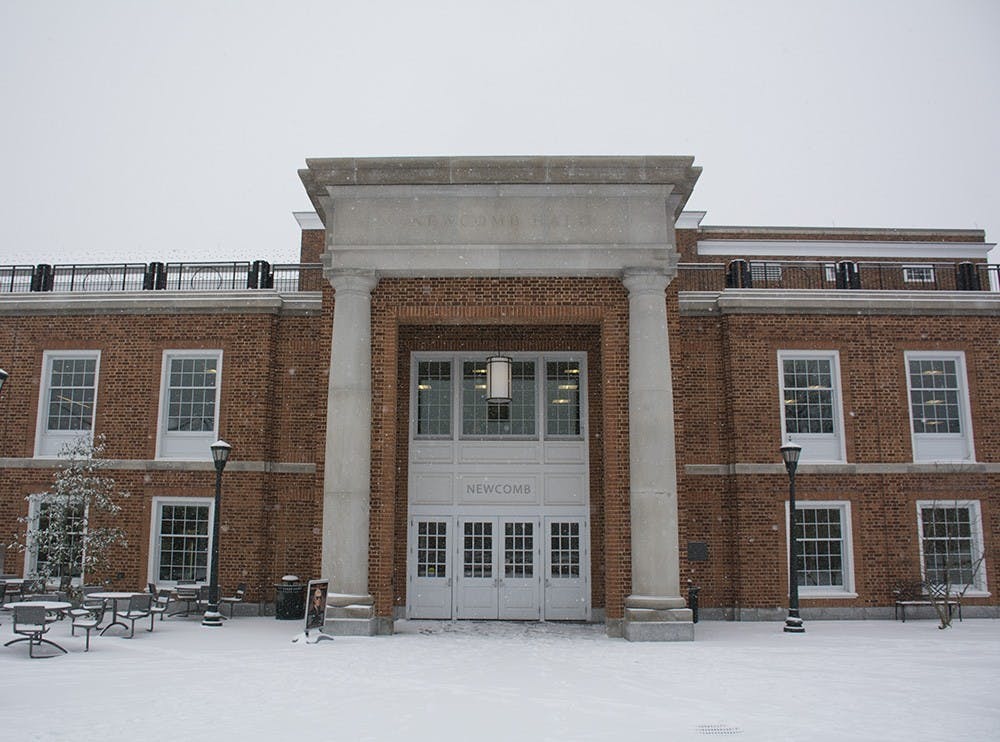High-income students are disproportionately represented at the University, which creates affordability barriers for low-income students seeking to integrate with their peers. In particular, joining special status organizations, or SSOs, like Student Council or the University Guide Service is challenging for students who must juggle these unpaid, time-intensive opportunities with other responsibilities. In order to facilitate low-income student engagement in these important University institutions, those students ought to be paid for their work through the Federal Work-Study program.
The University of Virginia is one of the least socioeconomically diverse public universities in the Commonwealth of Virginia. Just 2.8 percent of all students at the University come from the bottom 20 percent income percentile. By contrast, 67 percent of the student body come from the top 20 percent, and of those, 8.5 percent of all students reported household incomes within the top 1 percent. The proportion of the student body in the top 1 percent is higher than every other public university in the Commonwealth, and compares more to elite private institutions like Washington and Lee.
As a result of this lack of socioeconomic diversity, many first-generation and low-income — FGLI — students at the University have struggled fitting into and being a part of an environment where wealthier students are so grossly overrepresented. According to one survey of University students, over 50 percent of all FGLI students have cited harassment or discrimination regarding socioeconomic status. This takes many forms — from looking physically different from being unable to afford the latest student fashions, to being socially segregated to avoid groups where they would have to constantly spend money to keep up with their peers.
Most troubling are the barriers faced by FGLI students in joining an SSO, which often require large time commitments from members without a penny of compensation. For an FGLI student who may need to work a part-time job, the time required may make these positions unattainable for someone otherwise interested. Take the University Guide Service, for example. Joining requires a probationary semester with three-hour weekly classes, practice tours, breakout groups, and lots of other miscellaneous activities. That’s not exactly easy to balance if you’re a full-time student working a part-time job just to pay for your meal plan.
This is concerning, because special status organizations, like UGS, play pivotal roles in University operations. They oversee student organization funding, represent the University to prospective students, and run our Honor and Judiciary systems. Given the barriers that FGLI students face in being able to join these organizations, it is not hard to assume that they are even more underrepresented in their membership than they are in the overall student body. Though, to be fair, socioeconomic data on these organizations is not available to prove this definitively. But if true, it is alarming that such essential University functions are being completed by students who may be unaware of the challenges faced by FGLI students, and this may further exacerbate the University culture in which FGLI students have repeatedly expressed that they struggle to fit into.
Yet there’s a simple fix that can be made by the University to make membership in these SSOs more accessible — paying the students. Specifically, these funds can be provided through the Federal Work-Study program which targets recipients based on need identified through the FAFSA. Students who qualify for Work-Study will then be able to receive compensation for their labor — with 75 percent of that funding being subsidized by the federal government. Wages from Work-Study go directly towards students, and can be used at their discretion — just like income from a part-time job.
The University also has discretion over which jobs can count for Work-Study, and while jobs in SSOs may be untraditional, there is nothing stopping the University from counting them as such. If anything, the time commitment and quality of work may be better in some SSOs than in a traditional Work-Study job. Though critics may worry that paying students would violate the principle of student-self-governance, using Work-Study would target those being paid to just those with financial need, and would give these organizations the flexibility to recruit normally. Further, given the federal subsidies for Work-Study, and the financial position of both the University and many of these organizations individually, I am confident they could afford to take this step, and that the University’s resources would support them administratively.
Though the Work-Study program is not without its faults, expanding it to cover roles in special status organizations will make them more accessible to FGLI students who otherwise would be unable to participate. This will be a major improvement, not just in terms of breaking some of the barriers in access faced by low-income students, but also to ensure that University institutions themselves are representative of the student body.







